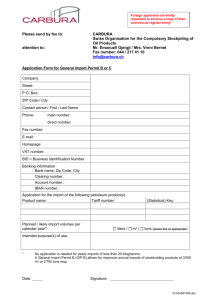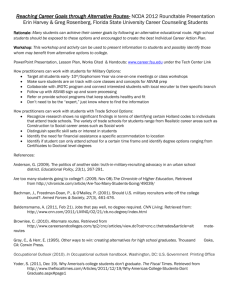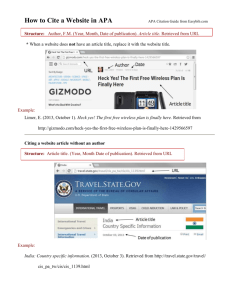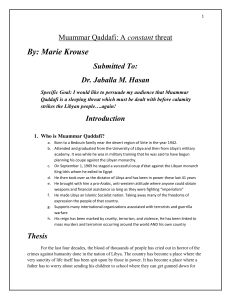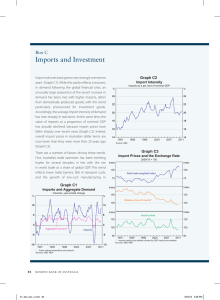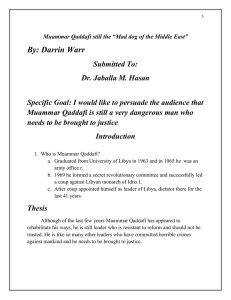File - United States Dependence on Foreign OIl
advertisement
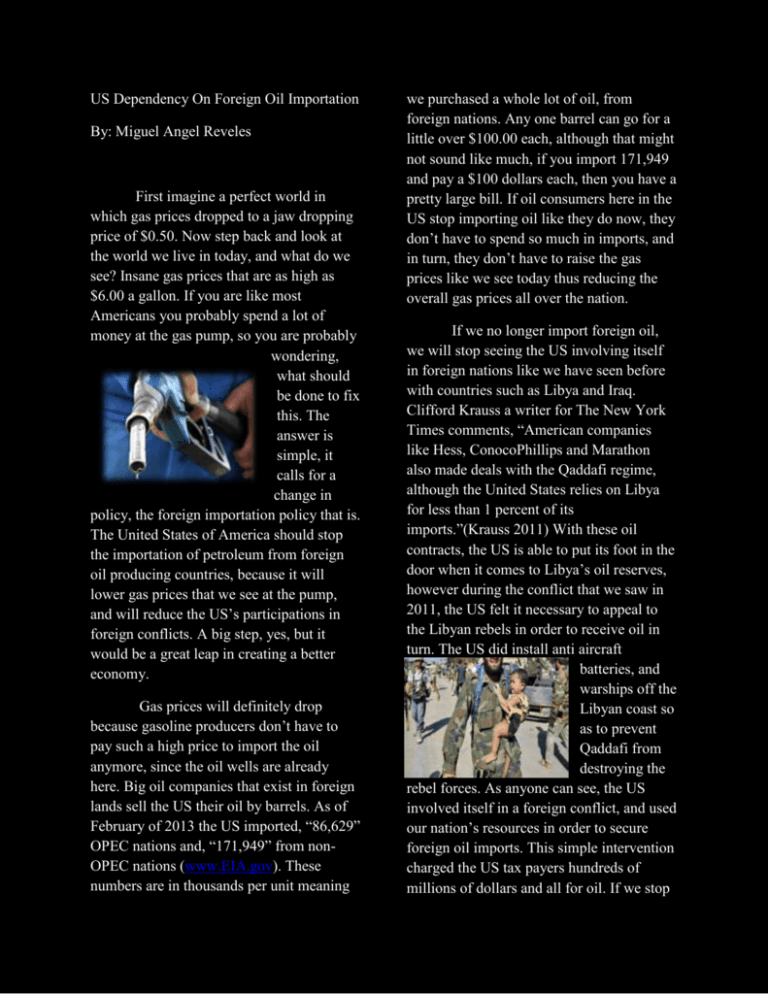
US Dependency On Foreign Oil Importation By: Miguel Angel Reveles First imagine a perfect world in which gas prices dropped to a jaw dropping price of $0.50. Now step back and look at the world we live in today, and what do we see? Insane gas prices that are as high as $6.00 a gallon. If you are like most Americans you probably spend a lot of money at the gas pump, so you are probably wondering, what should be done to fix this. The answer is simple, it calls for a change in policy, the foreign importation policy that is. The United States of America should stop the importation of petroleum from foreign oil producing countries, because it will lower gas prices that we see at the pump, and will reduce the US’s participations in foreign conflicts. A big step, yes, but it would be a great leap in creating a better economy. Gas prices will definitely drop because gasoline producers don’t have to pay such a high price to import the oil anymore, since the oil wells are already here. Big oil companies that exist in foreign lands sell the US their oil by barrels. As of February of 2013 the US imported, “86,629” OPEC nations and, “171,949” from nonOPEC nations (www.EIA.gov). These numbers are in thousands per unit meaning we purchased a whole lot of oil, from foreign nations. Any one barrel can go for a little over $100.00 each, although that might not sound like much, if you import 171,949 and pay a $100 dollars each, then you have a pretty large bill. If oil consumers here in the US stop importing oil like they do now, they don’t have to spend so much in imports, and in turn, they don’t have to raise the gas prices like we see today thus reducing the overall gas prices all over the nation. If we no longer import foreign oil, we will stop seeing the US involving itself in foreign nations like we have seen before with countries such as Libya and Iraq. Clifford Krauss a writer for The New York Times comments, “American companies like Hess, ConocoPhillips and Marathon also made deals with the Qaddafi regime, although the United States relies on Libya for less than 1 percent of its imports.”(Krauss 2011) With these oil contracts, the US is able to put its foot in the door when it comes to Libya’s oil reserves, however during the conflict that we saw in 2011, the US felt it necessary to appeal to the Libyan rebels in order to receive oil in turn. The US did install anti aircraft batteries, and warships off the Libyan coast so as to prevent Qaddafi from destroying the rebel forces. As anyone can see, the US involved itself in a foreign conflict, and used our nation’s resources in order to secure foreign oil imports. This simple intervention charged the US tax payers hundreds of millions of dollars and all for oil. If we stop importing oil, we will not have to intervene or conflict ourselves with foreign nations just to secure oil lines. Oil is one of the most essential commodities that this nation uses, and although we produce it, we still import it in great numbers, and this needs to stop. If we simply say no to foreign oil, much like kids do to drugs, we can achieve much more than we would while importing it. The nation should move to change the policy, in which the US is no longer allowed to import raw, crude, and unrefined petroleum from foreign nations. If we can complete this action, then US citizens will not have to pay so much at oil pumps, and the US would see much more peace time, and make friendlier alliances with foreign nations. The economy, is already in shambles as it is, if we stop buying foreign oil we will be seeing great changes all around our nation, and overall, we would probably be much happier and unified. References -United States Energy Information Administration (2013) U.S. Imports by Country of Origin. Retrieved From: http://www.eia.gov/dnav/pet/pet_move_impcus_a2_nus_ep00_im0_mbbl_m.htm -Soldier and Little Boy Photo. Retrieved from: http://rt.com/files/news/libya-nato-civilian-deaths323/loyalist-spokesman-sirte-ntc.si.jpg -Gas Pump Photo. Retrieved From: http://business.inquirer.net/files/2011/03/c2fb3-oil-prices.jpg Krauss, C. (2011) The Scramble for Access to Libya’s Oil Wealth Begins. Retrieved from: http://www.nytimes.com/2011/08/23/business/global/the-scramble-for-access-to-libyas-oil-wealthbegins.html?pagewanted=all&_r=0 Ocean Oil Rig Photo: Retrieved From: http://s.ngm.com/2008/06/siberian-oil/img/world-oil-615.jpg
